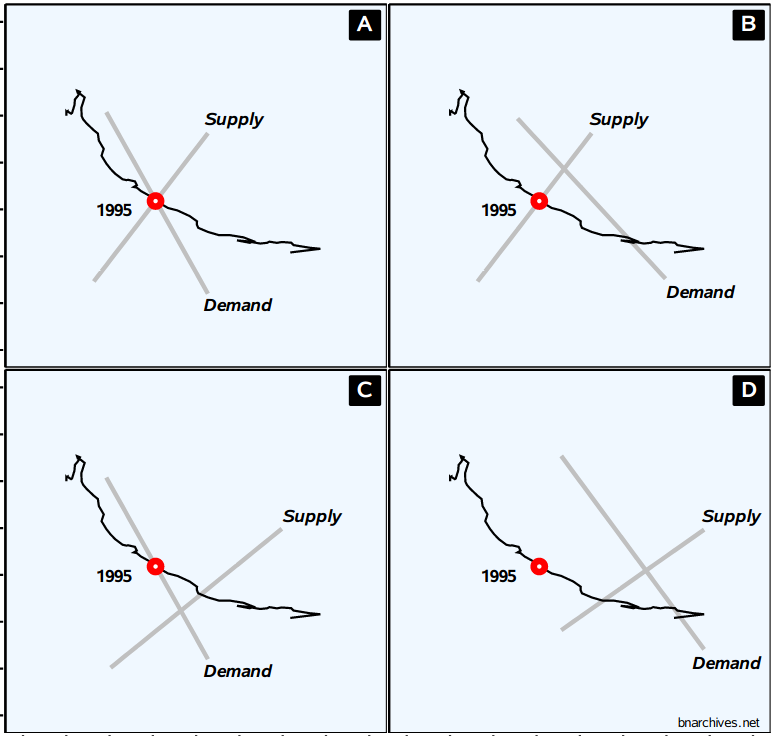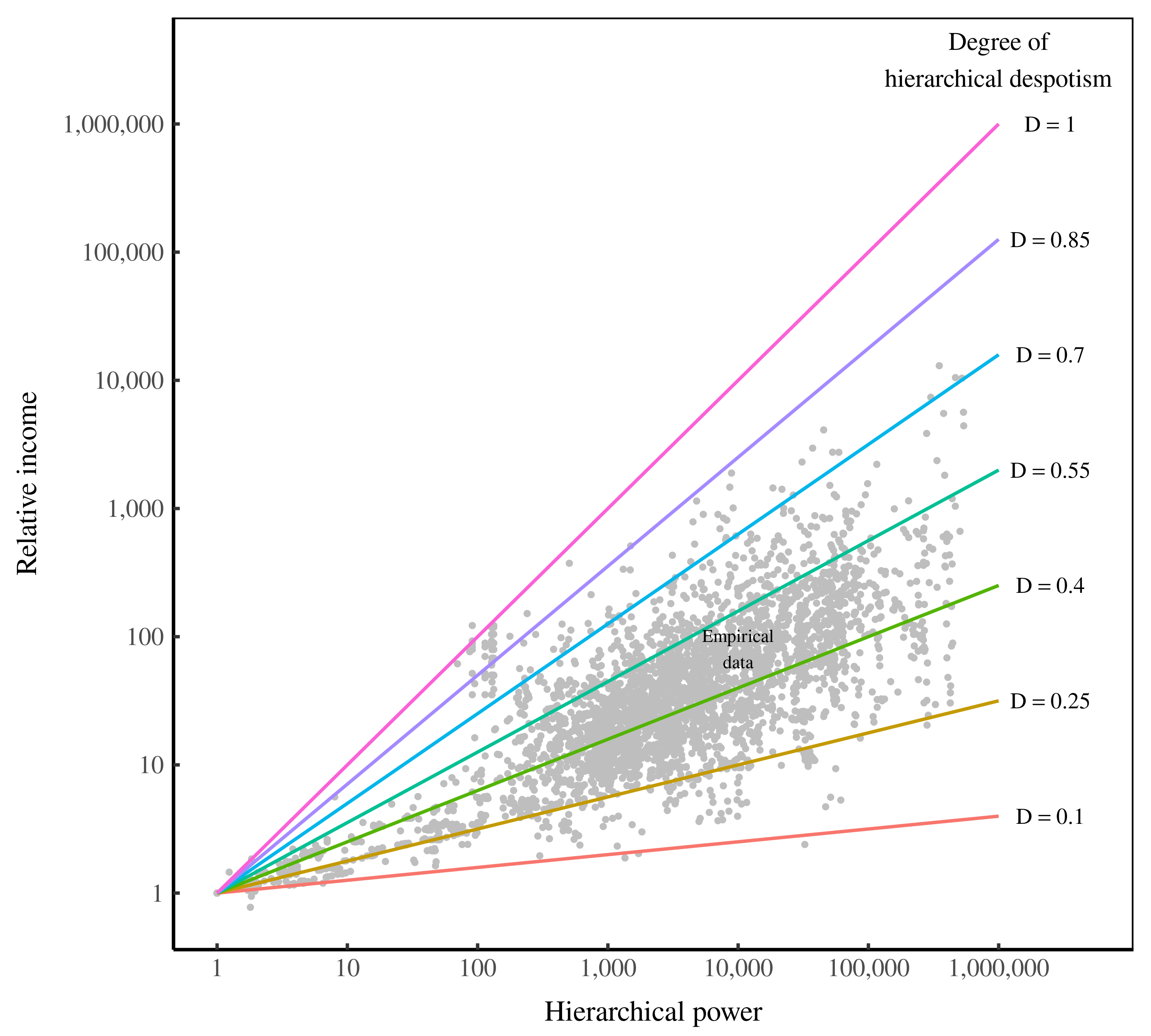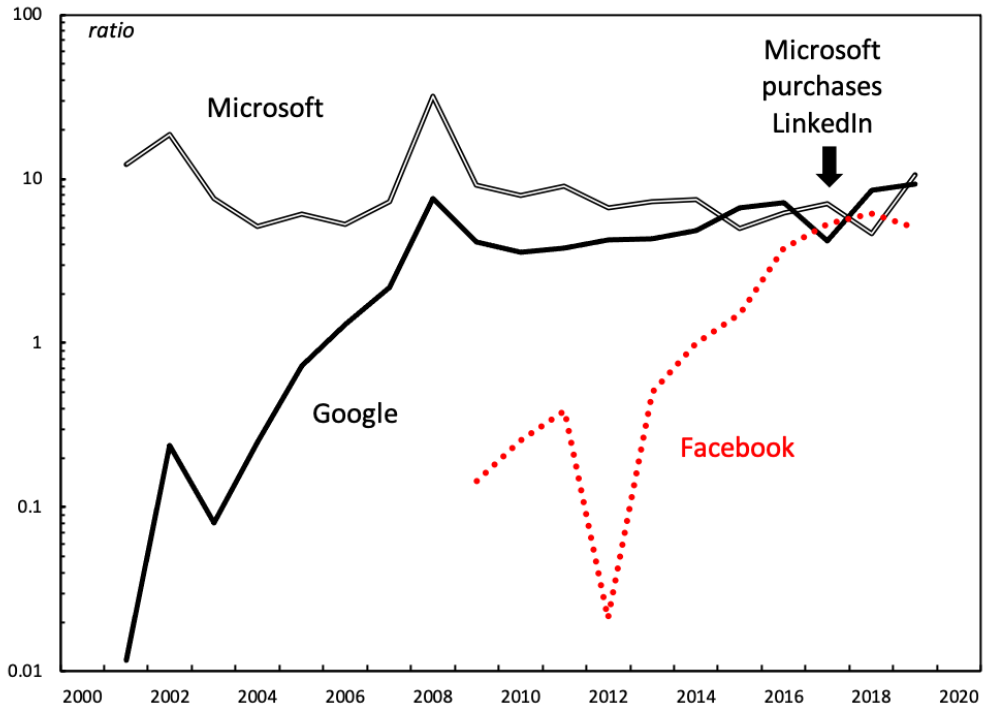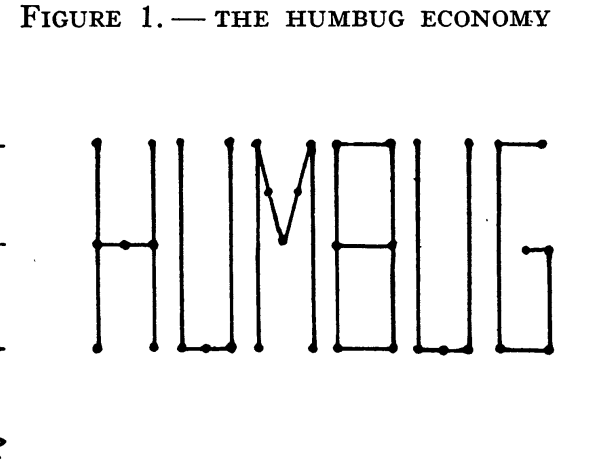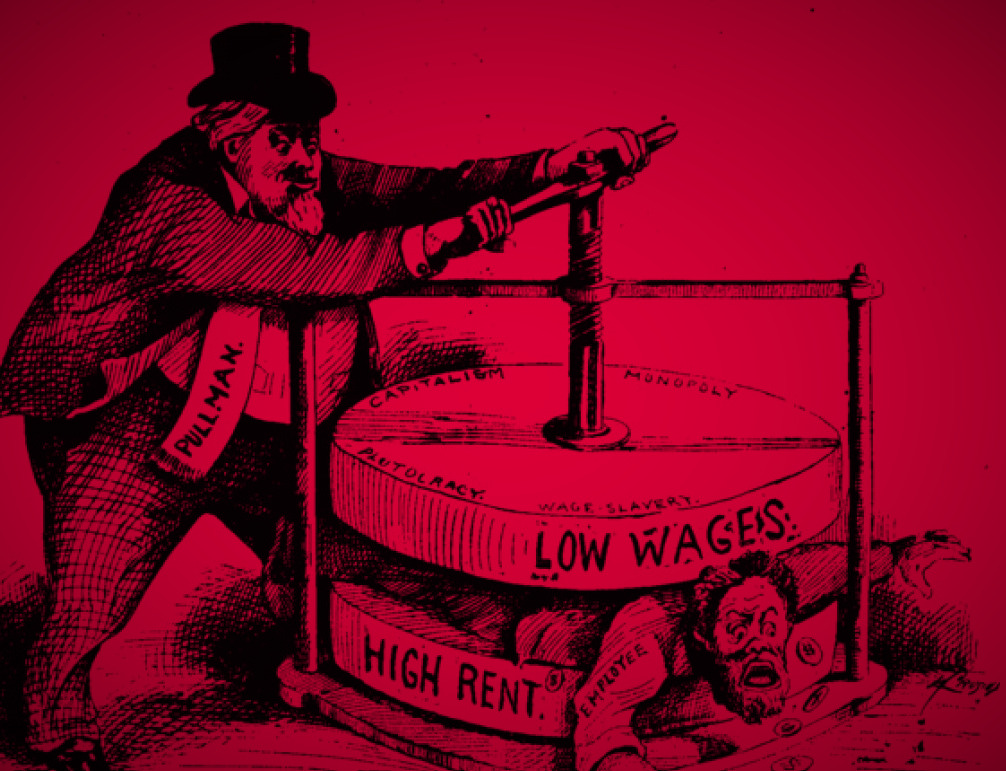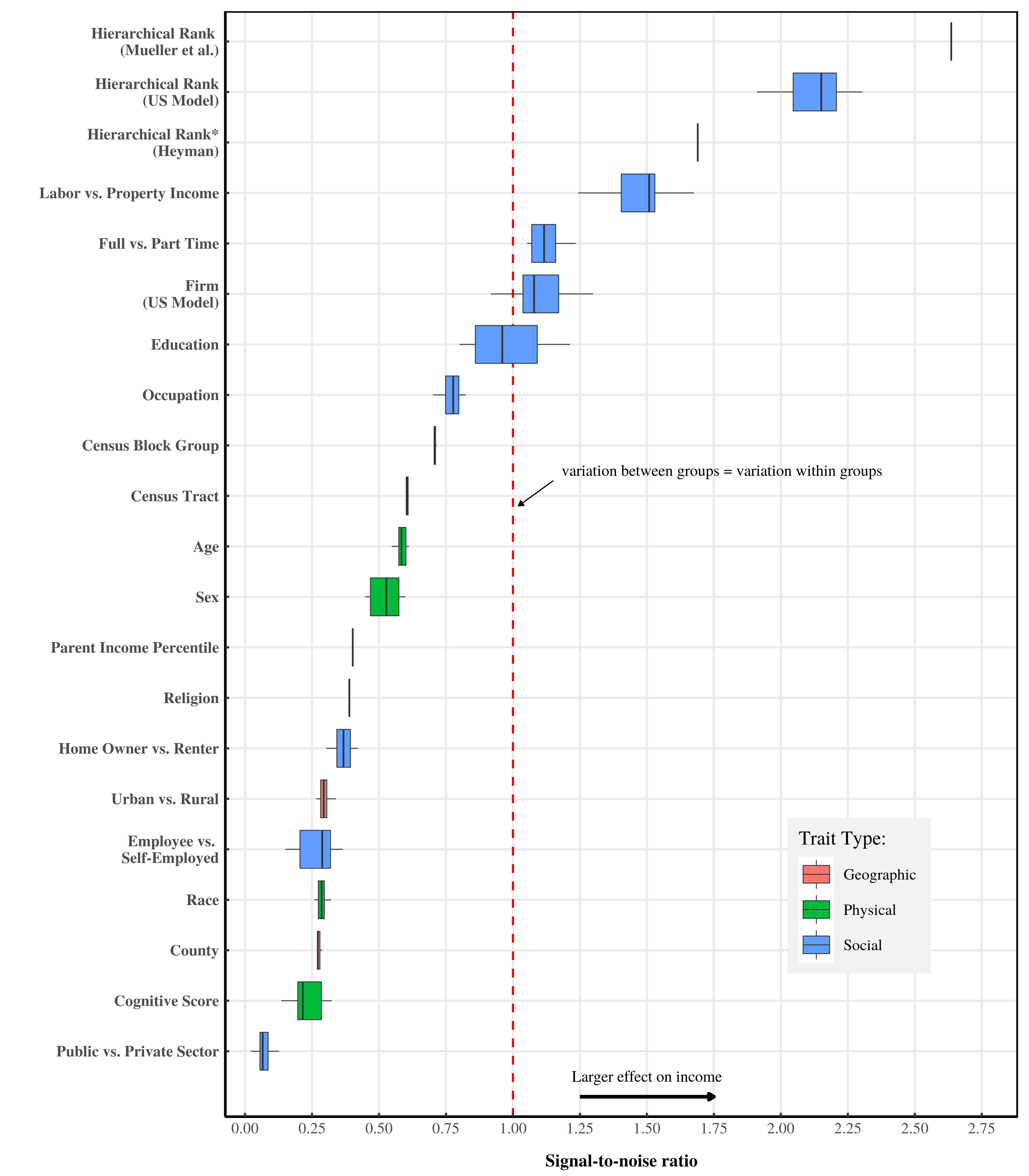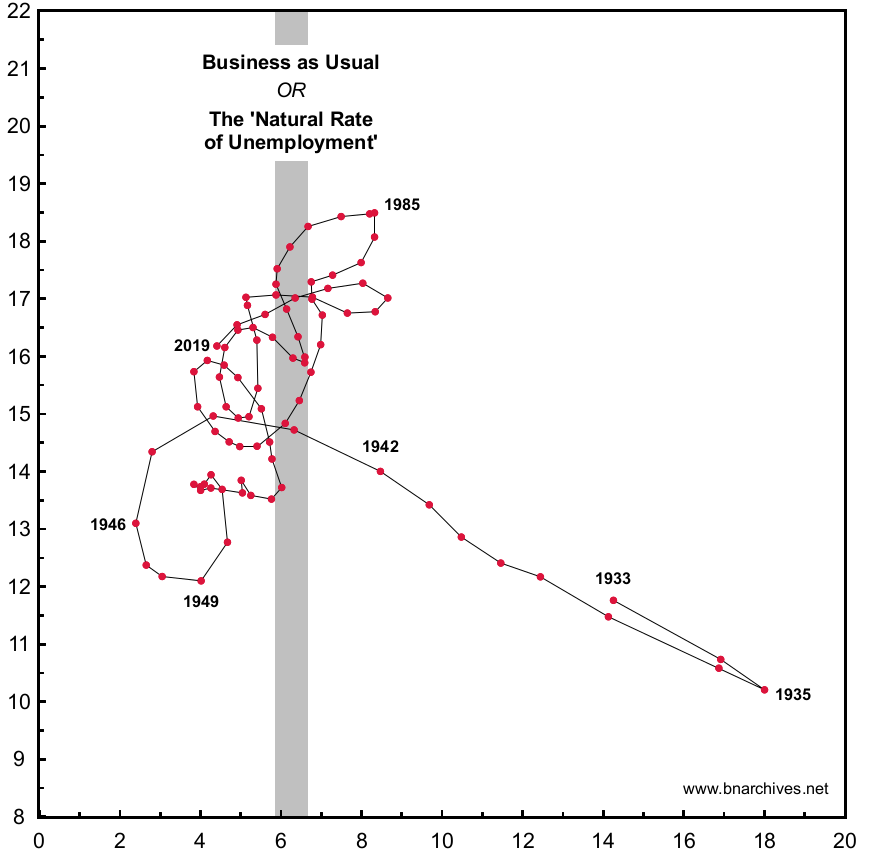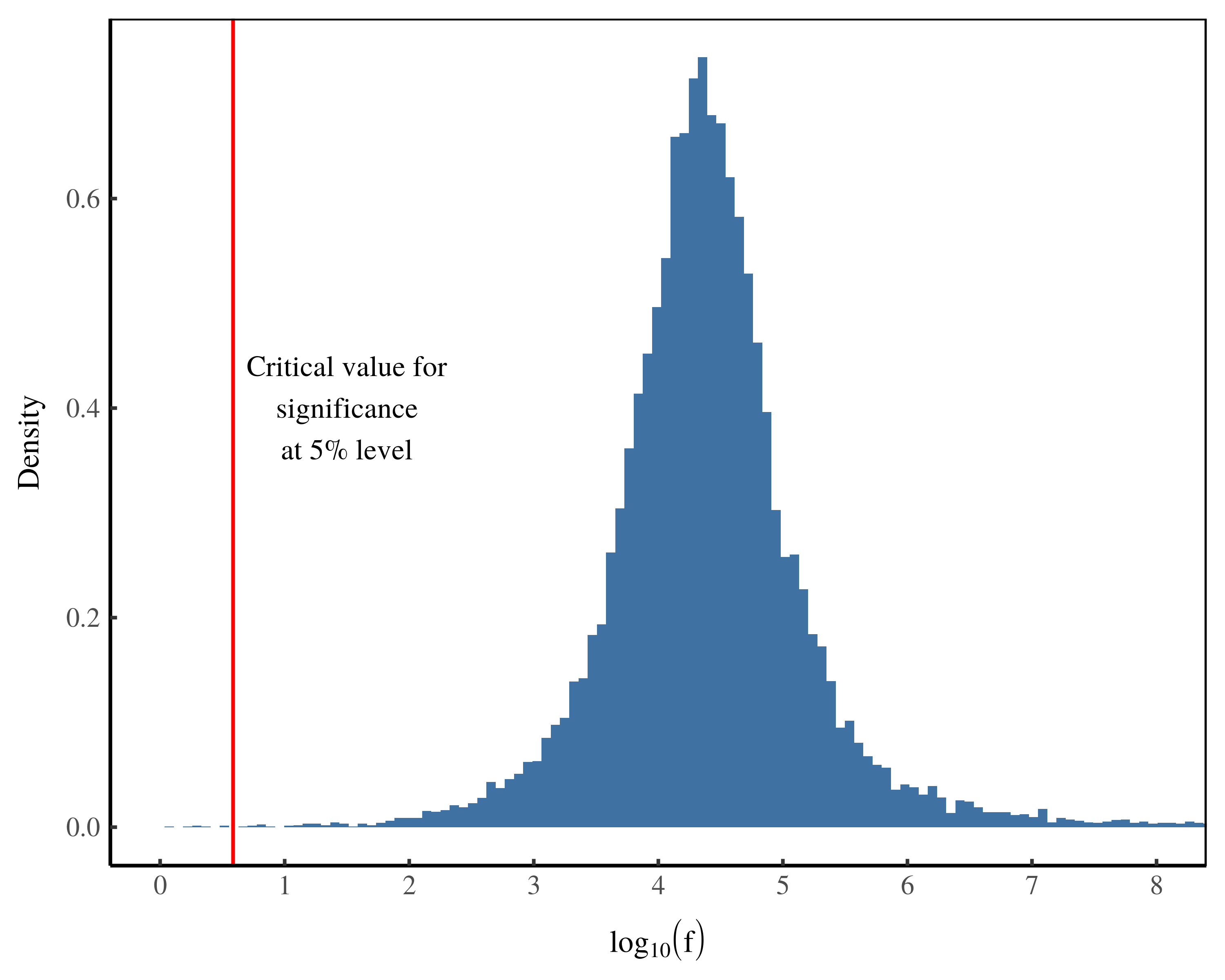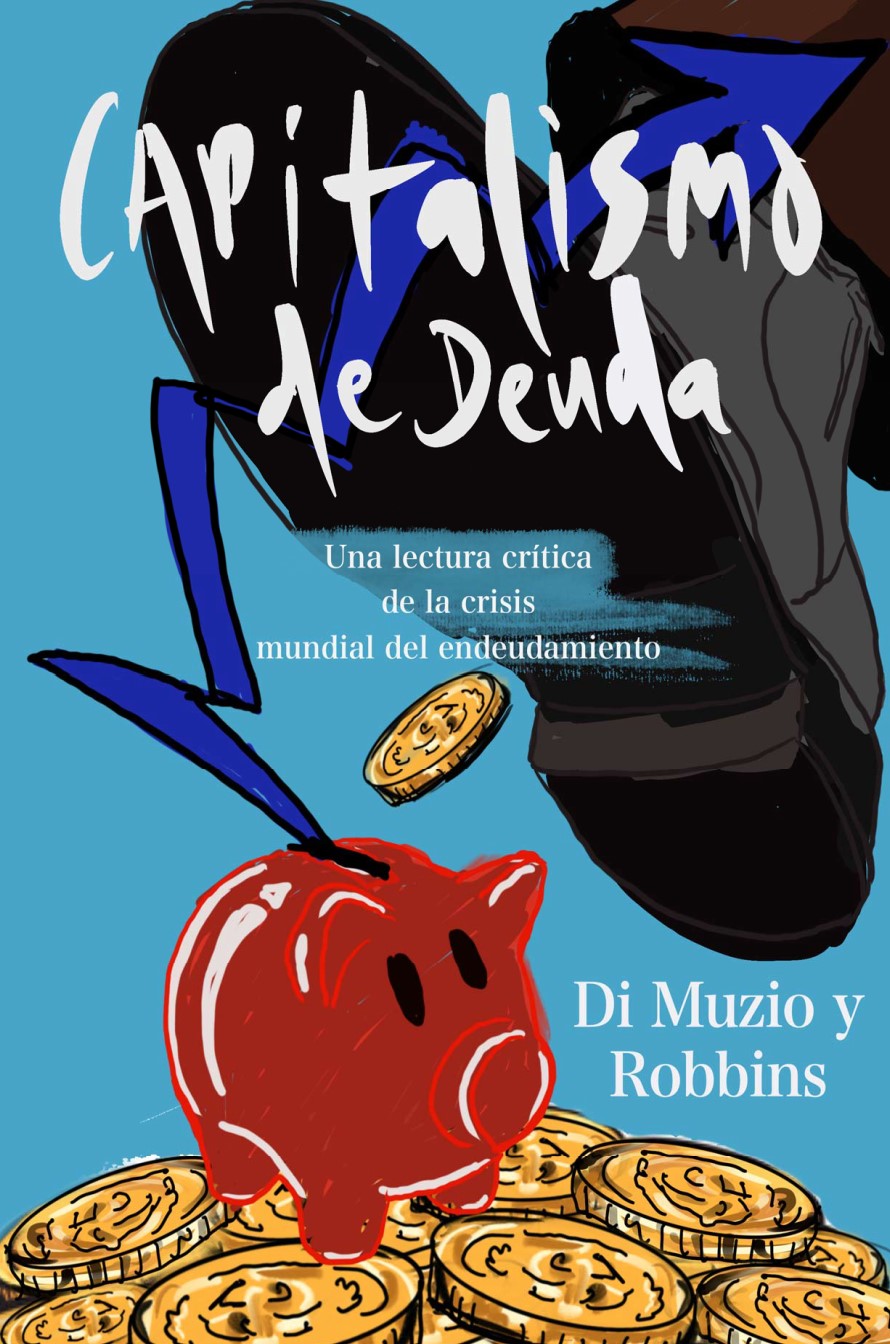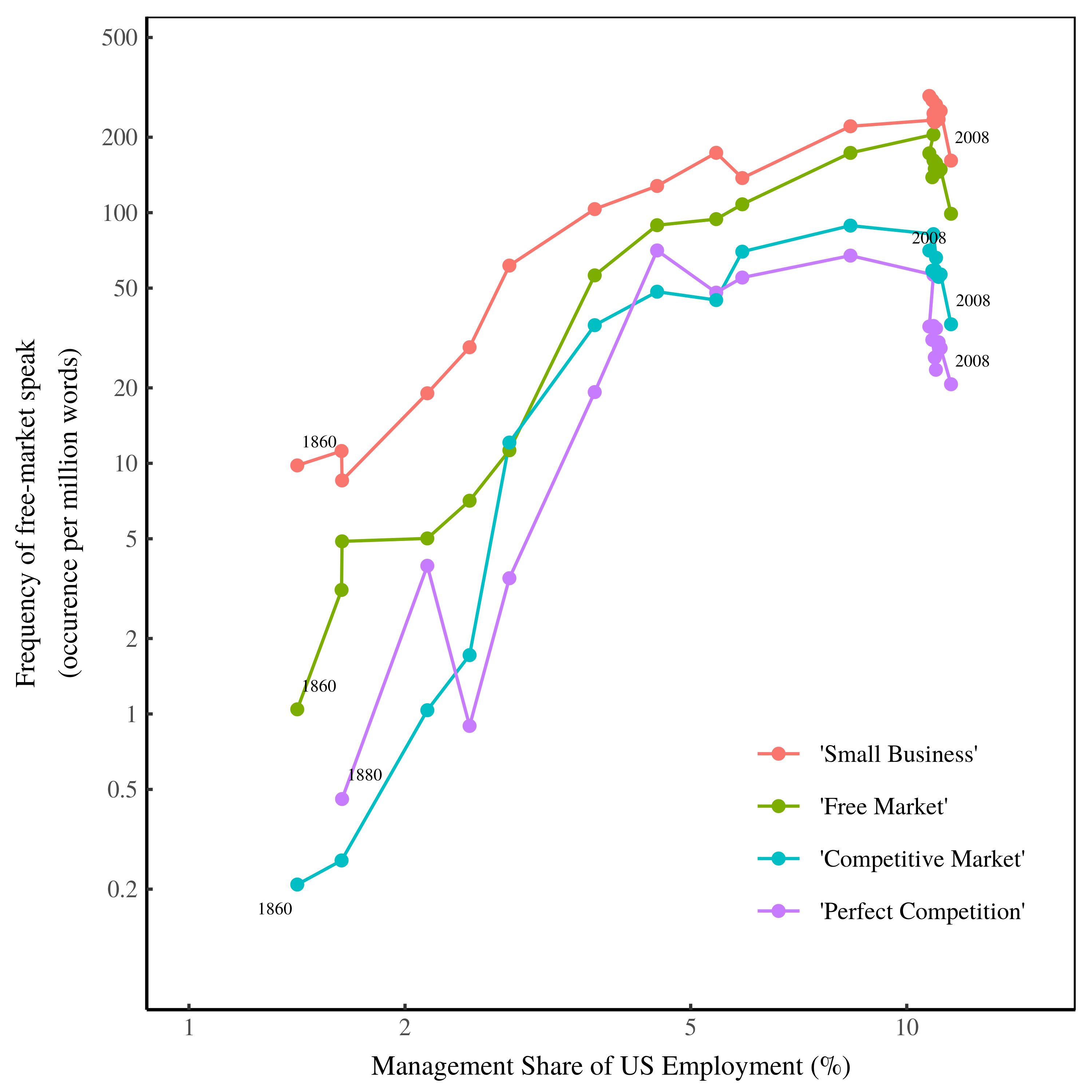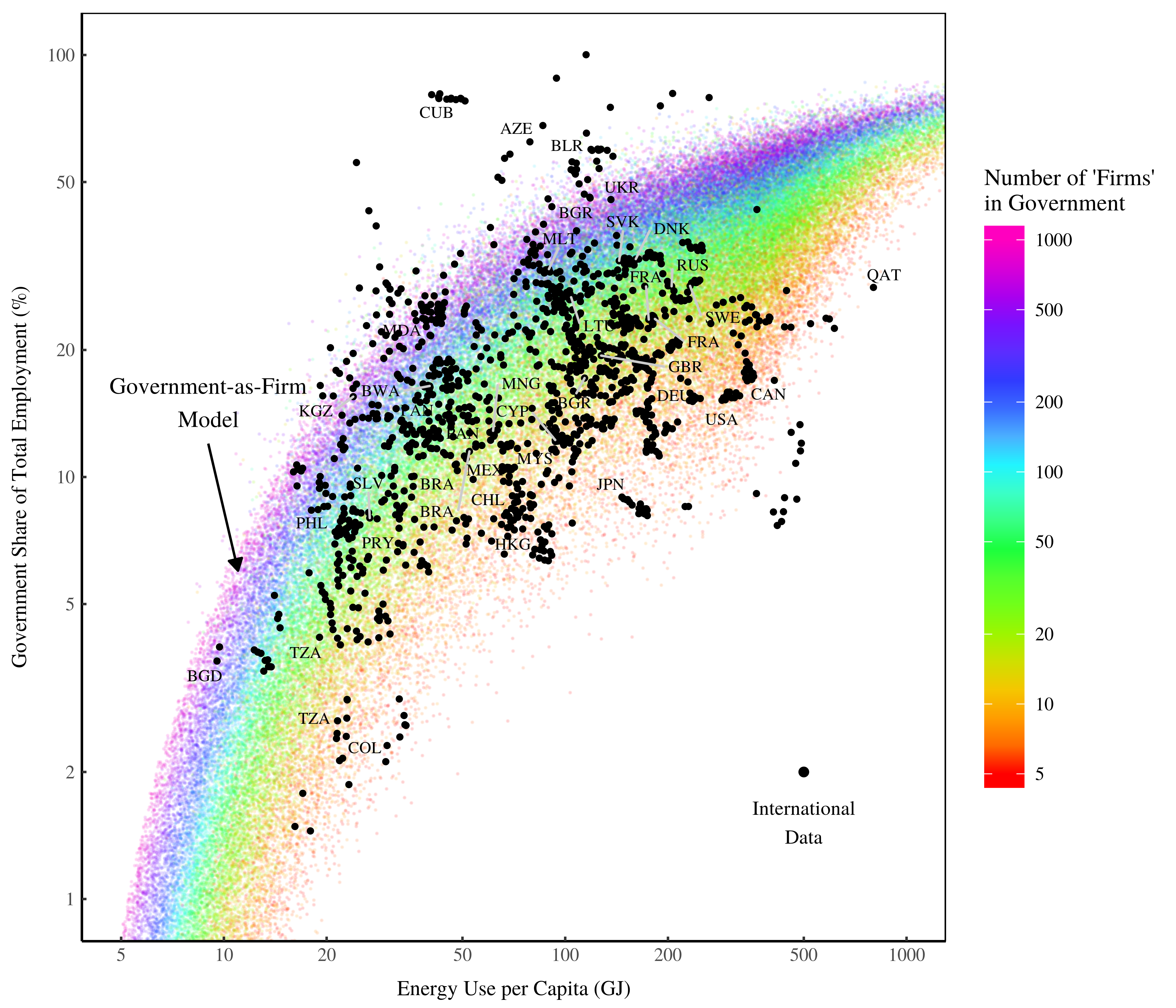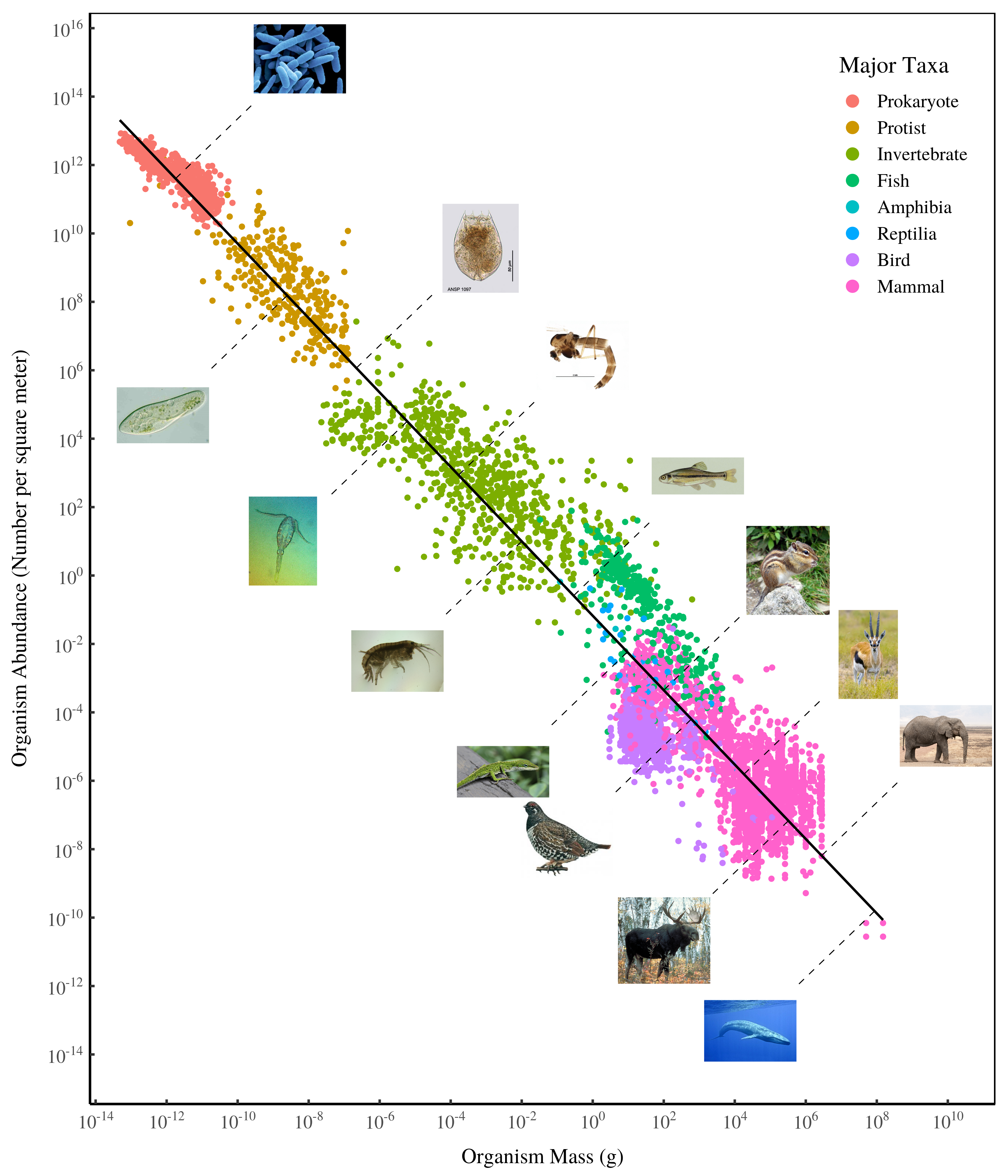Abstract We write this essay for both lay readers and scientists, though mainstream economists are welcome to enjoy it too. Our subject is the basic toolbox of mainstream economics. The most important tools in this box are demand, supply and equilibrium. All mainstream economists – as well as many heterodox ones – use these tools, […]
Continue ReadingBig money, nuclear subsidies, and systemic corruption
By Cassandra Jeffery1 and M. V. Ramana2 The “largest bribery, money-laundering scheme ever perpetrated against the people and the state of Ohio” came to light during an unexpected press conference in July 2020 in Columbus. Speaking haltingly and carefully, US Attorney for the Southern District of Ohio David DeVillers announced “the arrest of Larry Householder, […]
Continue Reading2021/02: Fix, ‘Living the good life in a non-growth world: Investigating the role of hierarchy’
Abstract Humanity’s most pressing need is to learn how to live within our planet’s boundaries — something that likely means doing without economic growth. How, then, can we create a non-growth society that is both just and equitable? I attempt to address this question by looking at an aspect of sustainability (and equity) that is […]
Continue Reading2021/01: Mouré, ‘Soft-wars: The Differential Trajectories of Google and Microsoft – a Capital as Power Analysis’
Abstract According to the capital as power framework, pecuniary earnings, or profits, are a symbolic representation of the struggle for power between different capitalist groups. In this struggle, capitalists measure their own power differentially – that is, relative to other capitalist entities. The focus on differential power, expressed in differential earnings, leads firms to try […]
Continue ReadingLucas, ‘Risking the earth, parts 1 and 2’
Abstract This two-part paper details the arguments and evidence that have been marshalled by both climate scientists and social scientists to critique the current procedures and methodologies deployed by the Intergovernmental Panel on Climate Change (IPCC) and the United Nations Framework Convention on Climate Change (UNFCCC) to represent the risks of anthropogenic forcing and a […]
Continue ReadingBaines & Hager, ‘Commodity Traders in a Storm: Financialization, Corporate Power and Ecological Crisis’
Abstract Commodity trading firms occupy a central position in global supply chains and their activities have been associated with financial instability, social upheaval and manifold forms of ecological devastation. This paper examines these companies in the context of debates regarding corporate financialization. We find that since the 2003–2011 commodity boom, trading firms have become less […]
Continue ReadingGameStop Capitalism: Wall Street vs. The Reddit Rally (Part 1)
Tim Di Muzio1 PDF version available here The phrase, ‘there’s a sucker born every minute’ is typically attributed to the American showman, P.T. Barnum and was made infamous since the mid-19th century by gamblers, hucksters and confidence artists (con men). On Wall Street, the ‘sucker’ is supposed to be the ‘dumb money’ retail traders who […]
Continue ReadingEconomic Growth Theory … Bah Humbug!
Originally published on Economics from the Top Down Blair Fix I’ve written a lot on this blog about the absurdity of marginal productivity theory. But I haven’t said much about the other pillar of mainstream economics: neoclassical growth theory. Today I’ll break that silence. Neoclassical growth theory is a textbook example of Murphy’s law. Everything […]
Continue ReadingMcMahon, ‘Selling Hollywood to China’
Abstract From the 1980s to the present, Hollywood’s major distributors have been able to redistribute U.S. theatrical attendance to the advantage of their biggest blockbusters and franchises. At the global scale and during the same period, Hollywood has been leveraging U.S. foreign power to break ground in countries that have historically protected and supported their […]
Continue ReadingBaines & Hager, ‘The Great Debt Divergence and its Implications for the Covid-19 Crisis: Mapping Corporate Leverage as Power’
Abstract The COVID-19 pandemic has amplified longstanding concerns about mounting levels of corporate debt in the United States. This article places the current conjuncture in its historical context, analysing corporate indebtedness against the backdrop of increasing corporate concentration. Theorising leverage as a form of power, we find that the leverage of large non-financial firms increased […]
Continue ReadingMonaghan & Cochrane, ‘Fight to Win! Tools for Confronting Capital’
Abstract Anarchists have generally rejected the idea that there is or ought to be a pure or inherently revolutionary strategy or tactic. In this chapter we make use of the capital-as-power theory of value and capital in a way that informs and supports the ad hoc perspective on struggle and fighting to win. Our primary […]
Continue ReadingWhat Trait Affects Income the Most?
Originally published on Economics from the Top Down Blair Fix If the history of science has taught us anything, it’s that we can’t trust our preconceptions about how the world works. All human societies have developed stories about their place in the cosmos. Almost without exception, these stories were wrong. True, we’ve killed many of […]
Continue Reading2020/06: Bichler & Nitzan, ‘The Limits of Capitalized Power. A 2020 U.S. Update’
Abstract Until the late 2000s, our work focused primarily on why capitalism should be understood as a mode of power. We argued that capital itself is a form of organized power and researched how capitalists sustain, defend and augment their capitalized power. We called our approach ‘capital as power’ – or CasP, for short. But […]
Continue ReadingProductivity and Income … Again
Originally published on Economics from the Top Down Blair Fix Today I’m going to revisit a topic that a month ago I committed to stop writing about — the productivity-income quagmire. Neoclassical economists argue that income is proportional to productivity. The problem is that they have no way of measuring productivity that is independent of […]
Continue ReadingDi Muzio & Robbins, ‘Capitalismo de deuda’
Abstract Capitalismo de deuda es un esfuerzo por descifrar cómo la tecnología de la deuda se ha convertido en uno de los mayores obstáculos para las aspiraciones democráticas y racionales de la sociedad moderna. Richard Robbins y Tim Di Muzio muestran que la deuda, entendida como una tecnología de poder, es un engranaje insertado en […]
Continue ReadingThe Free Market as a Double Lie
Originally published on Economics from the Top Down Blair Fix As social animals, humans live and die by the success of our groups. This raises a dilemma. What’s best for the group is often not what’s best for individuals within the group. If you’re surrounded by a group of trusting individuals, it’s best for you […]
Continue ReadingThe Challenges of Doing Revolutionary Science (Part 2)
Originally published on Economics from the Top Down Blair Fix In this two-part post, I’ve been reflecting on the challenges of doing revolutionary science. (See Part 1 here.) I’ve argued that revolutionary science — the practice of questioning the core principles of an accepted theory — is difficult for a simple reason. To do it, […]
Continue ReadingThe Challenges of Doing Revolutionary Science (Part 1)
Originally published on Economics from the Top Down Blair Fix Science is miraculously improbable. To work, it must fight against a deep human instinct — our desire to conform. As social animals, humans are built to do as others do. Why? Presumably because it’s advantageous. In our evolutionary past, conformist groups beat out non-conformist groups. […]
Continue ReadingWhat if the Government is Just Another Firm? (Part 2)
Originally published on Economics from the Top Down Blair Fix Governments are different than firms, right? Perhaps not. In Part 1 of this series, I argued that when it comes to size, governments behave like they’re ‘just another firm’. In this post, I’m going to extend the evidence. I’ll first show you that as economies […]
Continue ReadingWhat if the Government is Just Another Firm? (Part 1)
Originally published on Economics from the Top Down Blair Fix Originally published on Economics from the Top Down. I have a confession. I’m a political economist by trade, but I spend most of my time reading outside my discipline. I read about physics, cosmology, biology … the list goes on. Basically, if it’s not political […]
Continue Reading
